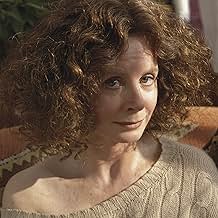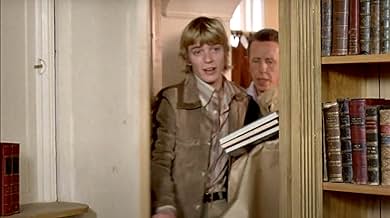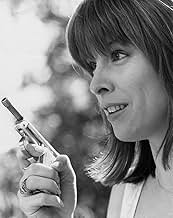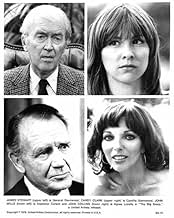A grizzled American private detective in England investigates a complicated case of blackmail-turned-murder involving a rich but honest elderly general, his two loose socialite daughters, a ... Read allA grizzled American private detective in England investigates a complicated case of blackmail-turned-murder involving a rich but honest elderly general, his two loose socialite daughters, a pornographer, and a gangster.A grizzled American private detective in England investigates a complicated case of blackmail-turned-murder involving a rich but honest elderly general, his two loose socialite daughters, a pornographer, and a gangster.
- Director
- Writers
- Stars
- Karl Lundgren
- (as Simon Turner)
- Director
- Writers
- All cast & crew
- Production, box office & more at IMDbPro
Featured reviews
The plot broadly follows that of the 1946 film, with the striking exception that the action takes place in London rather than Los Angeles. This does not, however, mean that the original has been completely anglicised. Both Philip Marlowe and General Sternwood are American expatriates living in London rather than Englishmen, and they are played by two of Hollywood's biggest stars, Robert Mitchum and James Stewart. With the exception of Richard Boone as Canino and Candy Clark as Sternwood's younger daughter, the other main parts are all played by British actors.
The film was clearly made as homage to the famous Humphrey Bogart classic, and it is inevitable that comparisons will be made between the two. In some respects, in fact, the later film is superior to, or at least as good as, the earlier one. (I have not read Raymond Chandler's novel, so I cannot say which film is closer to the original source material). The 1946 film is a fine one, but it is not perfect and has a number of weaknesses, not least its insanely complicated plot containing threads that are never developed and events that are never explained. The plot of the 1978 film, while complex enough, is somewhat easier to follow than that of its predecessor. To the purist Bogart fan there can be no substitute for the original, but to anyone else Robert Mitchum, himself a fine exponent of the film noir style during the early part of his career in the forties and fifties, seems like the best possible replacement. He is, of course, older than Bogart was when he played the role, and his portrayal of the character is perhaps less cynical and more thoughtful, but it is a perfectly acceptable interpretation. There are also good performances from Stewart in the cameo role of Sternwood, from Oliver Reed and from Joan Collins.
As a whole, however, the film does not live up to the standard of the original. Certainly, not all the actors are as good as their 1946 counterparts (Sarah Miles, for example, is no Lauren Bacall), but the main reason for its comparative failure goes deeper. The Bogart movie is perhaps the quintessential film noir, a film that one watches less for its plot, or even for its acting, than for its unique atmosphere of cynicism, menace and dubious glamour. An important factor in creating that atmosphere is its dark, brooding black-and-white photography. Unfortunately, in the late seventies the use of black-and-white was generally regarded as the equivalent of hanging a sign on the cinema door saying 'Warning! Art-house Movie! Intellectuals Only!' A few established auteur directors such as Woody Allen ('Manhattan') and Martin Scorsese ('Raging Bull') could get away with using monochrome, but there was no way that the studio would allow such latitude to Michael Winner, a director generally associated with violent commercial thrillers. So colour it had to be. In fact, the photography of London and the English countryside is quite attractive, but it is no substitute for the authentic film noir look.
I mentioned that the atmosphere of the earlier film was also one of dubious glamour; besides Bacall it has a large number of other strikingly beautiful but sinister women (some of them only in minor roles). The later film cannot compete in this respect. With the exception of Joan Collins (who could do sultry but sinister glamour in spades, even in her mid-forties), none of the female characters has the required touch of the femme fatale about her.
As a London-based crime thriller, Winner's 'The Big Sleep' is not a bad film; it is better than most of its director's other thrillers and better than a lot of other British films from the seventies. As homage to its namesake, however, it falls some way short of its aims. 6/10
It came as a surprise to me that Michael Winner was the director for the film. A man I associate with expensive dinners at expensive restaurants. But after watching this, and Death Wish, I have a new-found respect for eating in style. This film is not a Peckinpah, but it still manages to be incredibly effective in it's delivery. I like the car Mitchum drives too, a Mercedes soft-top.
The video is in widescreen by the way, requiring a screen re-adjustment or it'll look silly. Great performances from all of the actors and a superbly enjoyable plot in a film that has aged very well.
Some people criticised this film for being in the English countryside and that it doesn't bear up with the film noir style. I disagree, film noir is not limited to shady city streets, as this film goes to show.
But Richard Amsel's poster is great!
And that's what makes it so difficult to transfer his works to the screen. You almost have to have a voice-over from Philip Marlowe otherwise you not only get lost in the various plot twists but you miss the adamantly low-brow tropes -- "her hair was the color of gold in old paintings," or, "she threw me a glance I could feel in my hip pocket." "Chinatown," set in 1937 LA, was released to great critical and public acclaim in 1974. The very next year, Robert Mitchum tackled Philip Marlowe in "Farewell, My Lovely" and he was great, and so was the production, even if it was not the masterpiece that "Chinatown" was. Nobody will ever make a masterpiece out of a Chandler story because, after all, a masterpiece usually starts out with a coherent plot.
So the trick is to capture on screen what Chandler's prose evokes on the written page. Style is everything. "Farewell My Lovely" had it. "The Big Sleep," alas, doesn't. The director hasn't really done much to help things. In the 1946 version of "The Big Sleep," Howard Hawks at least had some fun with the characters. (Bogart and the horn-rimmed glasses in the book shop.) Hawks also allowed some humor in the dialog. ("She tried to sit in my lap while I was standing up.") Philip Marlowe with his resolutely seedy presence belongs in the marginal zone of Los Angeles, not in the uptrodden neighborhoods of London. He belongs in a trench coat, wearing an older fedora, not in the powder blue suits of Saville Row. ("I own a hat and a coat and a gun," he tells Nulty in "Farewell My Lovely," "and everything I touch turns to s***.") In this film we have to put up with a confident and compassionate Marlowe, striding through the fancy decor instead of slouching, never touching a drop of alcohol. And Mitchum doesn't add much to the story besides his usual heft. As James Agee once said of him, his casual languor suggests Bing Crosby supersaturated on barbiturates.
That reminds me. I couldn't help wondering, while I watched this, how much booze had gone into the production. I forget whether Chandler had quit drinking by the time he wrote this, but Mitchum himself was hardly an amateur. Olivier had kicked Cyril Cusack out of the Old Vic for showing up drunk for a performance of "Doctor's Dilemma" and reciting lines from another of Shaw's plays. Richard Boone was evidently immobilized during his last few years and Oliver Reed died of drink.
Still, look at the actors in this thing. In support are Edward Fox, Harry Andrews, James Donald, Colin Blakely, James Stewart, and Richard Todd. And all of them are up to the task, true professionals, with not a hollow note struck. I'm tempted to call the cast "peerless" but I don't know if it's permitted if there's a theatrical knight among them. Richard Boone is outstanding as Canino -- a villainous wreck, hobbling about on a broken foot, cackling over his own sliminess, howling with unrestrained glee as he watches a harmless little man whom he has just poisoned crash through a glass door and die.
Also notable are the locations and the art direction. It may not be sleazy Los Angeles in 1941 but London and its interiors look just fine. London has never looked less grimy. There is no rain or fog, the streets are clean, narrow and lined with classy book shops, and people tend to drive new and expensive cars.
Well, the movie is done with dash and style, no doubt about that. But it's the wrong style. Marlowe belongs in the 1940s. In the 1940s pornography and dope could get you serious jail time -- just ask Mitchum.
I didn't much care for it the first time I saw this. The second time was easier going because I'd lowered the bar of my expectation.
Did you know
- TriviaJames Stewart had difficulty saying his lines on time due to hearing and possibly memory problems. Some of the cast were shocked by his aged appearance. Robert Mitchum recalled, "The picture was all about corpses, but Jimmy looked deader than any of them." Stewart actually outlived Mitchum by one day, nearly 20 years later.
- GoofsWhen Marlowe takes the gun from Camilla after she unloads it on him with multiple blank rounds, he grabs the barrel with his bare hands. That should have proved to be very painful as the barrel would be extremely hot.
EDIT: This is incorrect. Blank cartridges in a small calibre gun will not heat the barrel to any great extent. A gun barrel gets hot mainly due to the friction of the bullet going through the barrel, not from the powder in the cartridge.
- Quotes
Charlotte Sternwood: [when Marlowe declines to blackmail her] Wha-? You don't want money?
Philip Marlowe: Oh sure. All I itch for is money. I'm so greedy that for fifty pounds a day plus expenses on the day I work, I risk my future, the hatred of the cops, of Eddie Mars and his pals, I dodge bullets and put up with slaps and say "Thank you very much. If you have any further trouble please call me: I'll just put my card here on the table." I do all that for a few pounds. And maybe just a little bit to protect what little pride a sick and broken old man has in his family, so that he can believe his blood is not poisoned. That his little girls - though they may be a trifle wild - are not perverts and killers.
- ConnectionsFeatured in James Stewart, Robert Mitchum: Les deux visages de l'Amérique (2017)
- How long is The Big Sleep?Powered by Alexa
- After reading the book three times and watching both versions of the film innumerable times, who killed owen taylor?
Details
- Release date
- Countries of origin
- Language
- Also known as
- The Big Sleep
- Filming locations
- Knebworth House, Knebworth, Hertfordshire, England, UK(Sternwood Mansion)
- Production companies
- See more company credits at IMDbPro
Box office
- Budget
- £3,000,000 (estimated)
Contribute to this page






































